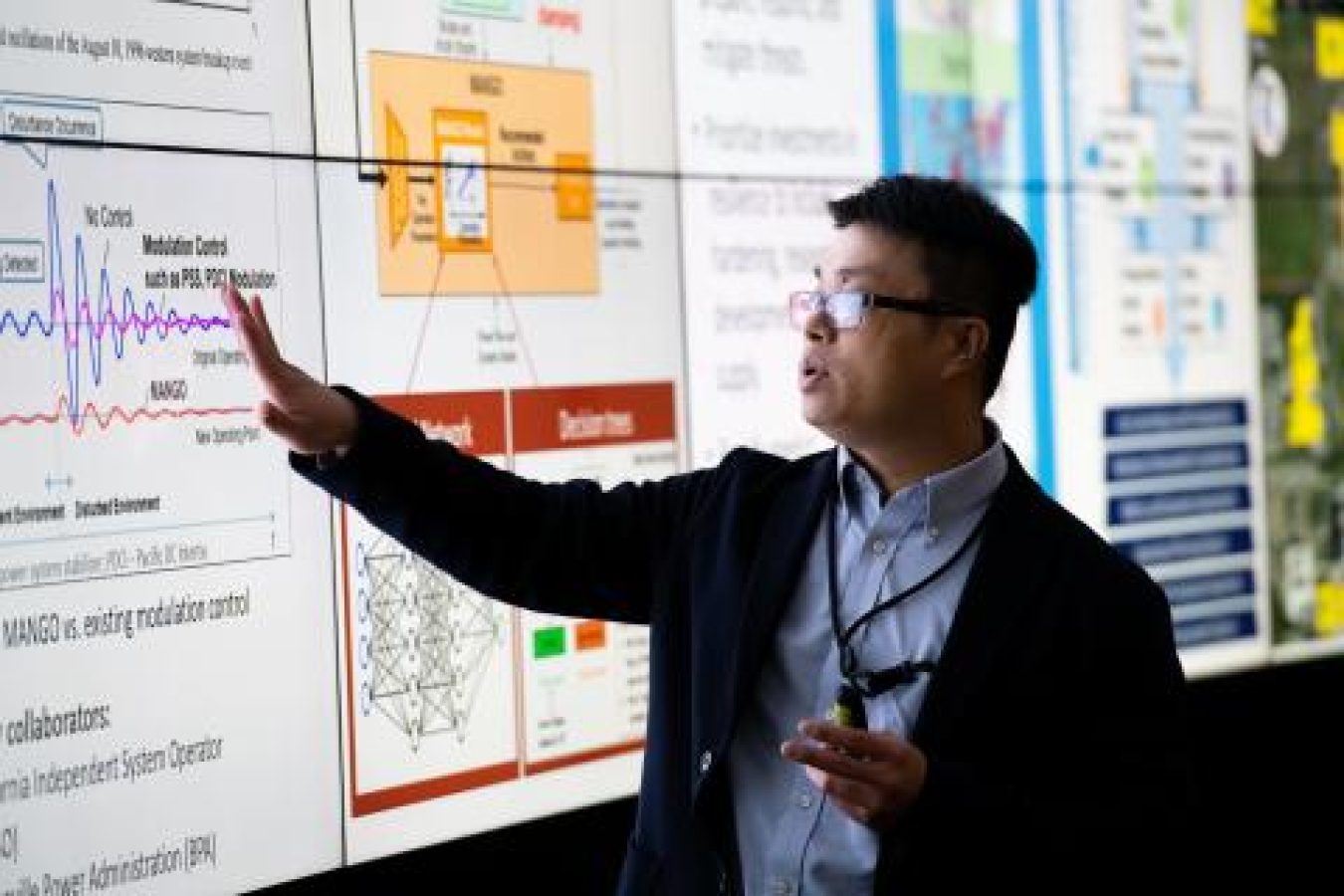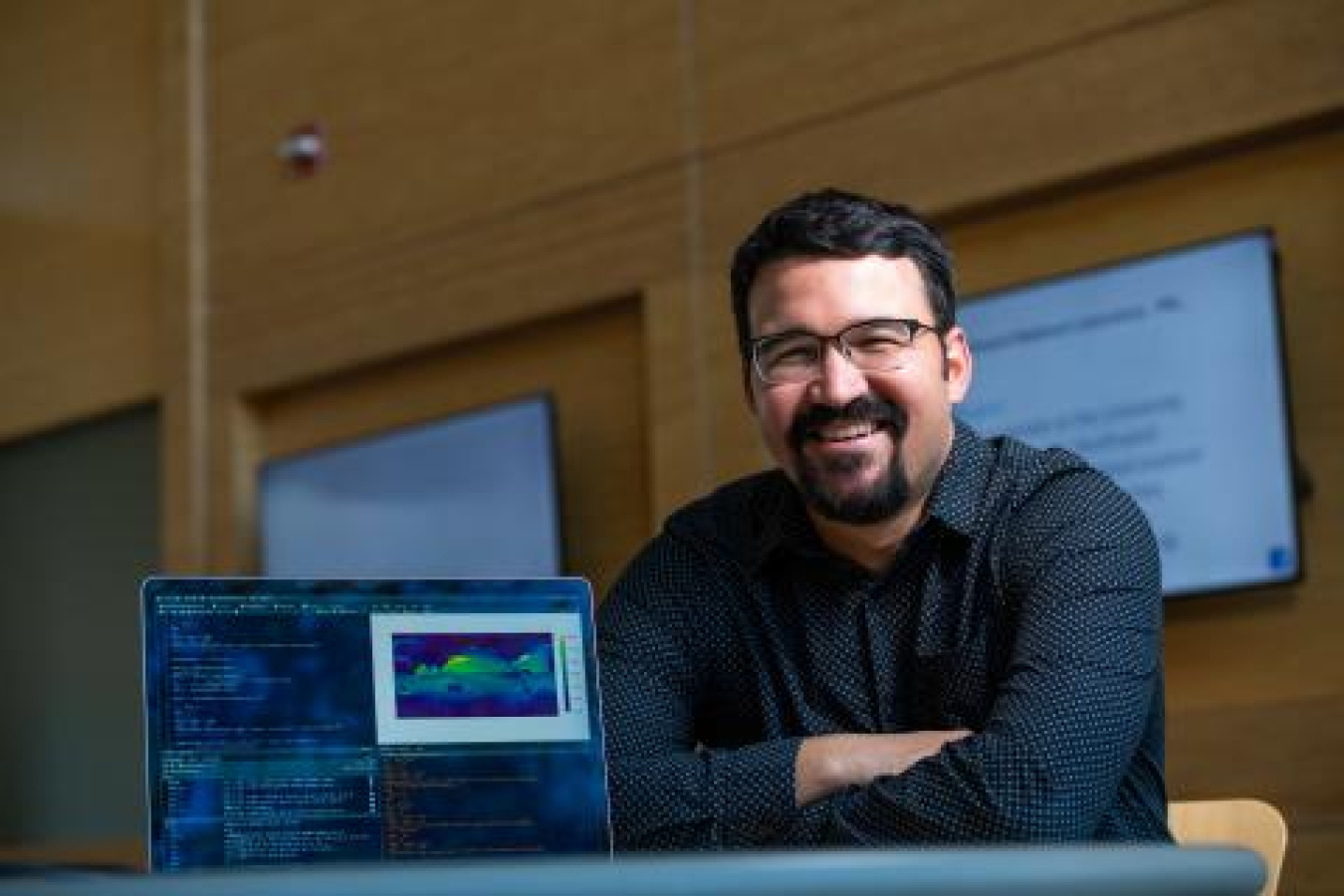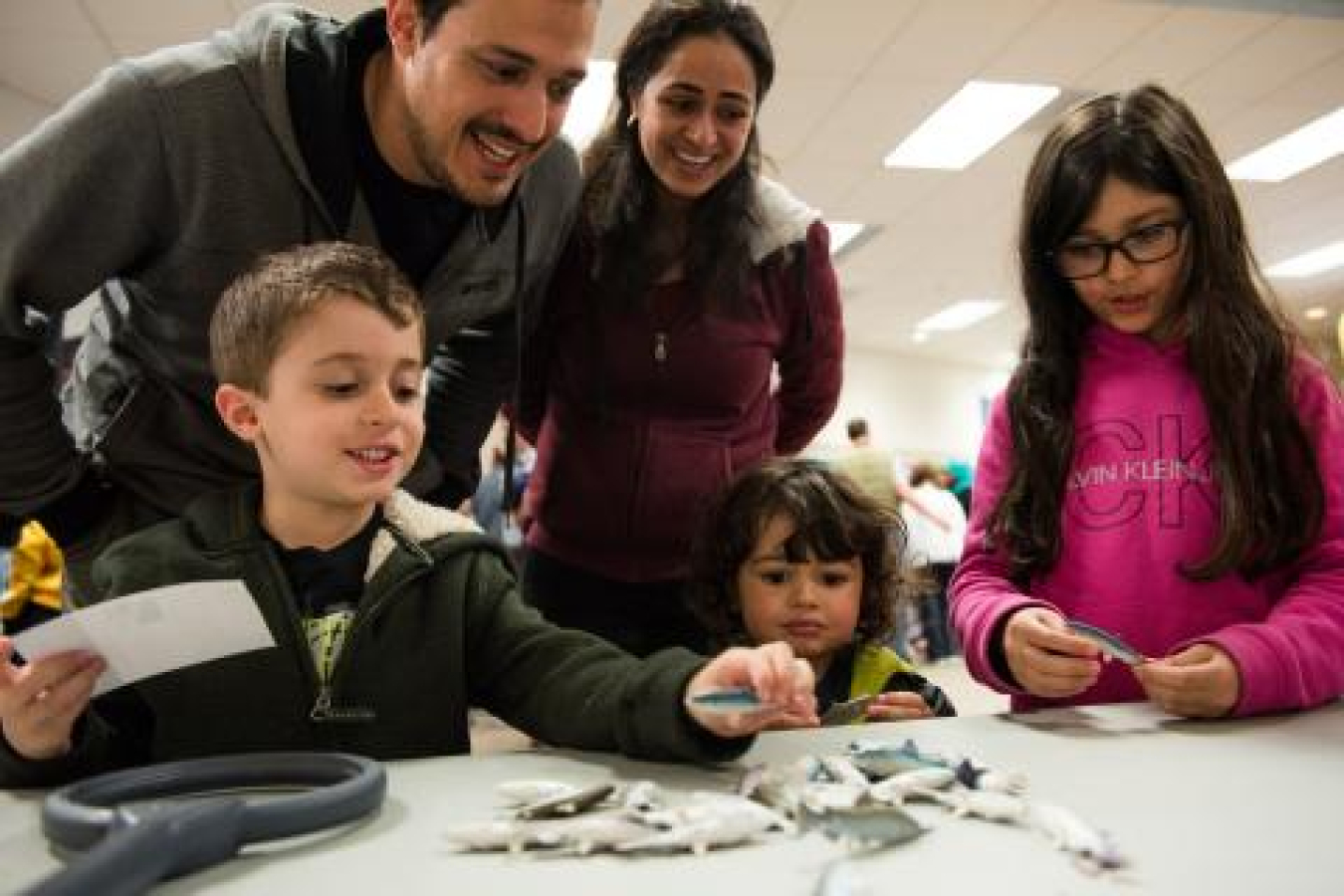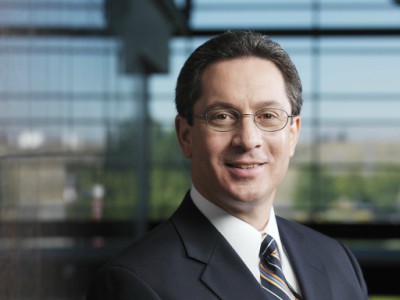From basic scientific research to practical solutions to vexing problems, PNNL is doing its part to make a difference.
April 24, 2020Editor's note: this article was originally posted in the Tri-City Herald on April 24, 2020.
The Tri-Cities is an amazing place, and it is exciting to see it moving forward. At the Department of Energy's Pacific Northwest National Laboratory, we are proud of our contributions to our community and the world. From basic scientific research to practical solutions to vexing problems, PNNL is doing its part to make a difference.

PNNL's many accomplishments are a tribute to the expertise and experience of our nearly 4,800 scientists, engineers and support professionals. Each bright mind and innovative spirit plays a role in advancing the frontiers of knowledge, enhancing energy resiliency and strengthening national security. Our researchers and operations staff members work side-by-side to ensure that work is performed safely and sustainably.
Last year, PNNL conducted $1 billion in scientific research, drawing upon signature capabilities in chemistry, Earth sciences and data analytics. Our researchers made new discoveries and deepened our understanding of our planet and the universe. They also applied their knowledge to address some of society's greatest challenges, helping to ensure a more prosperous and secure future.
For example, PNNL is renowned for its catalysis research. This research has led to longer-lasting, more efficient and safer batteries. Our researchers also contributed to the first biofuel approved by the Federal Aviation Administration, performed in collaboration with industry partners. Closer to home, our capabilities in actinide science, subsurface flow and transport, and glass science support Hanford cleanup.

PNNL mathematicians and computer scientists are advancing machine learning and artificial intelligence, as well as demonstrating their potential in real-world applications. They are using machine learning to improve climate models, identify novel molecules for energy storage and support national security needs. In the future, we hope to imbue critical infrastructure, such as the power grid, with artificial intelligence to keep it safe and sound.
To enhance our capabilities, we just began construction of the Energy Sciences Capability project. This facility will house 200 staff members and state-of-the-art instruments for fundamental research in chemistry, materials science and computational science. Another planned facility will translate these discoveries into energy storage solutions for the grid.
We know that achieving bold outcomes requires collaboration. Our joint institutes with Washington State University, the University of Washington, the Oregon Health & Science University and the University of Maryland demonstrate how we apply our collective strengths toward shared objectives. Graduate student programs help train tomorrow's scientific leaders and provide them with opportunities to work with our researchers on our campus. And our growing industrial partnerships are key to moving research results into the marketplace.

We also recognize the importance of diversity and inclusion at PNNL, and we strive to set an example within the community and across the DOE complex. We need people of diverse backgrounds, perspectives and experiences to fuel the creativity and innovation required to meet the challenges before us. This is a personal passion of mine, and I am proud of what we are doing to make PNNL and the Tri-Cities a welcoming workplace and community.
Speaking of community, we deeply appreciate the support of our neighbors and enjoy opportunities to give back. Our staff volunteered more than 30,000 hours to local organizations in 2019. Over the years, Battelle has invested nearly $30 million in science, education and the quality of life in the Tri-Cities area.
At PNNL, your friends, relatives and neighbors are striving to make the world cleaner, safer and more prosperous. This is a daunting challenge, but we're committed to delivering the scientific leadership and impact needed to do it. We appreciate your support and are proud to contribute to the progress of the Tri-Cities.
Dr. Steven Ashby
Dr. Steven Ashby is the Director of the Pacific Northwest National Laboratory (PNNL), one of the Department of Energy's 17 National Laboratories. He is responsible for establishing the Laboratory's vision and setting its strategic direction. Under his leadership, PNNL's exceptional staff are advancing the frontiers of science and addressing complex challenges in energy, the environment, and national security. In particular, the Laboratory is providing national leadership in climate science, the power grid, nuclear nonproliferation, and environmental remediation.
Dr. Ashby previously served as PNNL's Deputy Director for Science and Technology, and was responsible for integrating PNNL's science and technology capabilities to meet national needs. Toward that goal, he led institutional strategic planning activities, stewarded an $80M discretionary research portfolio, and promoted Laboratory-wide efforts to elevate PNNL's standing in the broader scientific community. He also oversaw the Laboratory's technology commercialization, government relations, and research integrity functions. He served as a member of DOE's Laboratory Operations Board and was past chair of the DOE National Laboratory Chief Research Officers Working Group, which advises the National Laboratory Director's Council on scientific and programmatic issues.
Before joining PNNL in 2008, Dr. Ashby spent nearly 21 years at Lawrence Livermore National Laboratory (LLNL), ultimately serving as Deputy Principal Associate Director for Science and Technology. He previously oversaw the activities of the 500-person Computing Applications and Research Department. Dr. Ashby was the founding director of LLNL's Center for Applied Scientific Computing, which was established in 1996 and has since matured into one of the world's premier scientific computing research organizations.
Dr. Ashby is widely recognized as a leader in computational science and has worked to advance it as a discipline throughout his career. His research focused on computational mathematics and scalable numerical algorithms; he is considered an expert in polynomial iterative methods and adaptive preconditioning techniques for large sparse linear systems. He has published numerous papers, and he has worked in a variety of areas, including large-scale scientific simulation (with application to electromagnetics and subsurface flow and transport), numerical linear algebra, massively parallel computing, and applied computer and data sciences. He remains active in the computational science community, including participation in the Society for Industrial and Applied Mathematics.
In 2013, Dr. Ashby was elected a Fellow of the American Association for the Advancement of Science in the mathematics section for "exceptional technical contributions and scientific leadership in applied mathematics and computational science, particularly the development of novel numerical methods and robust software for parallel computers, as well as for exemplary service to the field of computational science and engineering." He also was elected to the Washington State Academy of Sciences in 2013.
He holds a B.S. in Mathematics/Computer Science from the University of Santa Clara. He earned his M.S. and Ph.D. in Computer Science from the University of Illinois at Urbana-Champaign.


